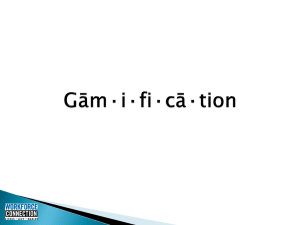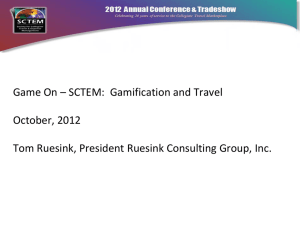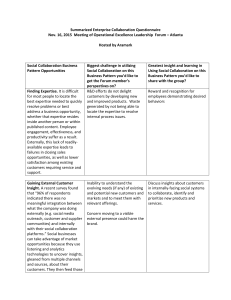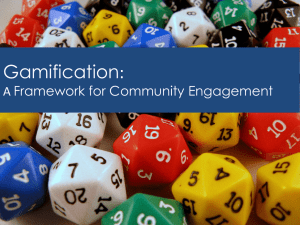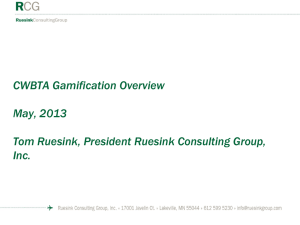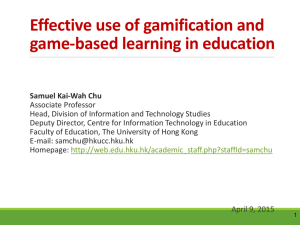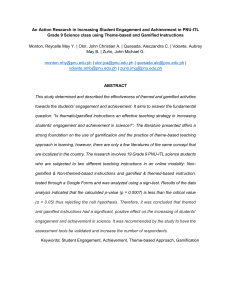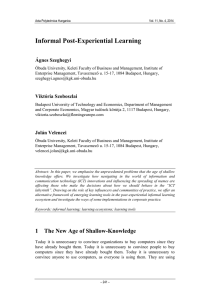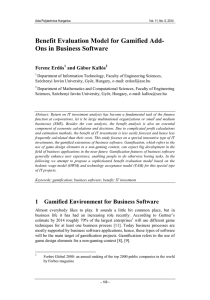Gamification Course Specification
advertisement
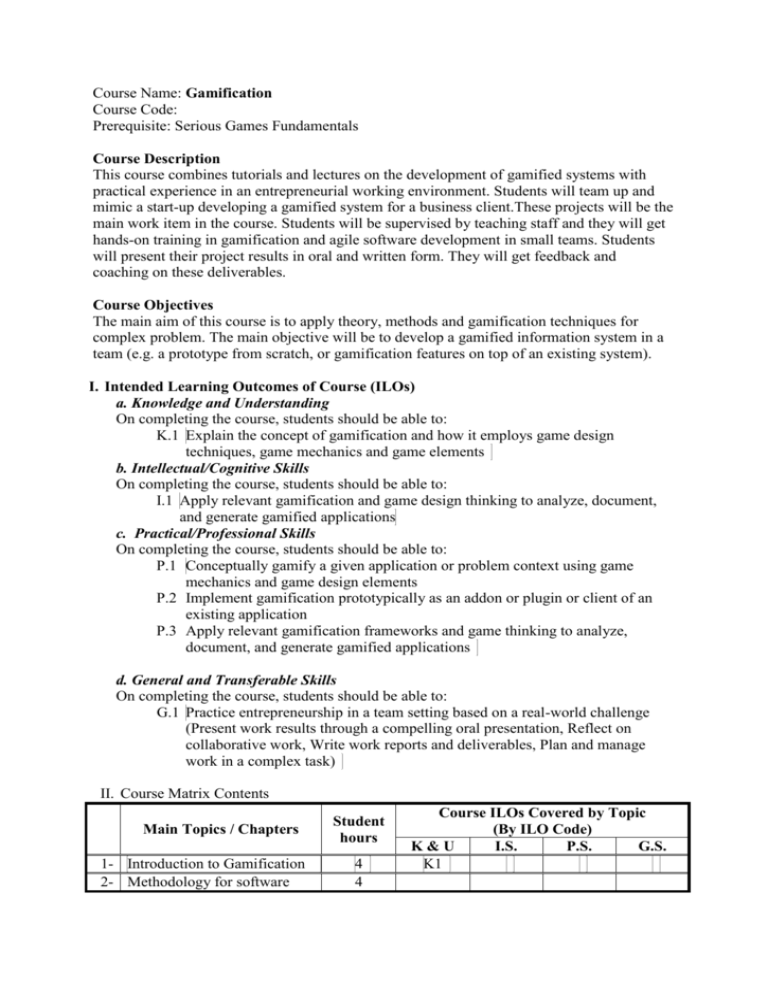
Course Name: Gamification Course Code: Prerequisite: Serious Games Fundamentals Course Description This course combines tutorials and lectures on the development of gamified systems with practical experience in an entrepreneurial working environment. Students will team up and mimic a start-up developing a gamified system for a business client.These projects will be the main work item in the course. Students will be supervised by teaching staff and they will get hands-on training in gamification and agile software development in small teams. Students will present their project results in oral and written form. They will get feedback and coaching on these deliverables. Course Objectives The main aim of this course is to apply theory, methods and gamification techniques for complex problem. The main objective will be to develop a gamified information system in a team (e.g. a prototype from scratch, or gamification features on top of an existing system). I. Intended Learning Outcomes of Course (ILOs) a. Knowledge and Understanding On completing the course, students should be able to: K.1 Explain the concept of gamification and how it employs game design techniques, game mechanics and game elements b. Intellectual/Cognitive Skills On completing the course, students should be able to: I.1 Apply relevant gamification and game design thinking to analyze, document, and generate gamified applications c. Practical/Professional Skills On completing the course, students should be able to: P.1 Conceptually gamify a given application or problem context using game mechanics and game design elements P.2 Implement gamification prototypically as an addon or plugin or client of an existing application P.3 Apply relevant gamification frameworks and game thinking to analyze, document, and generate gamified applications d. General and Transferable Skills On completing the course, students should be able to: G.1 Practice entrepreneurship in a team setting based on a real-world challenge (Present work results through a compelling oral presentation, Reflect on collaborative work, Write work reports and deliverables, Plan and manage work in a complex task) II. Course Matrix Contents Main Topics / Chapters 1- Introduction to Gamification 2- Methodology for software Student hours 4 4 Course ILOs Covered by Topic (By ILO Code) K&U I.S. P.S. G.S. K1 development (Process tutorial Agile programming; project management; Case study – mini project, XP) Studying existing 3Gamification platforms Case study / mini project (3 4mini-project, presentation) Team Project on Gamification, (presentation, 5- project reviews, reporting, reflection sessions, evaluation) Total student hours [12] 10 K1 170 P3 G1 I1 P1 G1 I1 P1, P2 G1 200 III. List of References Essential Text Books Course notes Recommended books Periodicals, Web sites, etc … Aldrich, Clark (2009). The Complete Guide to Simulations and Serious Games. Pfeiffer. Karl M. Kapp, The Gamification of Learning and Instruction: Gamebased Methods and Strategies for Training and Education, 2012, John Wiley & Sons William Hall, Shift: Using Business Simulations and Serious Games: A straightforward guide for corporate training and development, 2014, CreateSpace Independent Publishing Platform Kevin Werbach, For the Win: How Game Thinking Can Revolutionize Your Business, 2012, Wharton Digital Press Alistar Cockburn, Agile Software Development, 2002, Addison Wesley, Inc. None Gabe Zichermann, Christopher Cunningham, Gamification by Design: Implementing Game Mechanics in Web and Mobile Apps, 2011, O'Reilly Media Kent Beck, Extreme Programming Explained: Embrace Change, 2nd Edition (The XP Series), 2004, Addison-Wesley Gamification platforms Web sites IV. Facilities required for teaching and learning Room with beamer and flipcharts For tutorial session students will need Laptops or PCs Interactive Whiteboard or SmartBoard DataShow for students presentations
